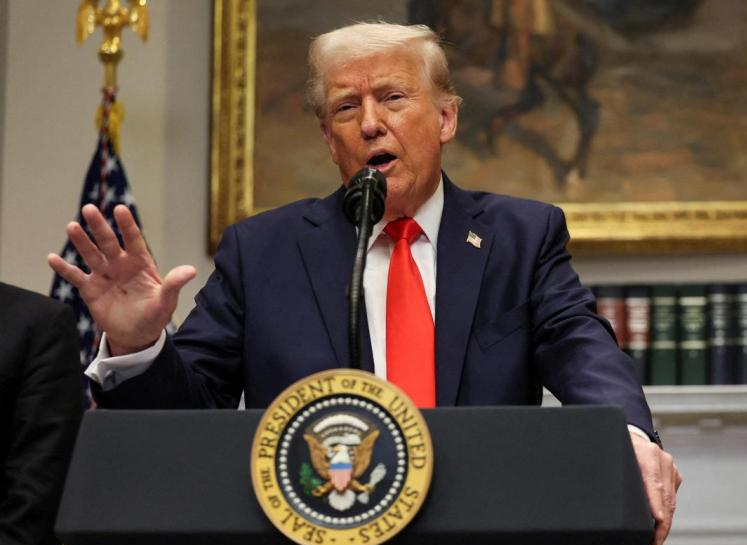
U.S. President Donald Trump has ordered the suspension of all military aid to Ukraine until he can determine that Ukraine's leader has demonstrated a sincere commitment to peace, a senior U.S. defense official said.
Bloomberg reported that the senior official, who spoke on condition of anonymity, said Trump had instructed Defense Secretary David Hegseth to carry out the order. The suspension measures cover all military equipment that has not yet reached Ukraine, including weapons that are being transported by plane or ship, as well as material stored in the Polish transit area.
It is unclear how much of an impact Mr Trump's suspension will have on the scale of aid. It is understood that the Biden administration left about $3.85 billion in presidential appropriations authorization funds (that is, resources drawn from U.S. inventories) when he was in office. But since Mr. Trump took office, it has been uncertain whether that money will be used to support Ukraine, especially given the depleted U.S. weapons stockpile, which needs to be replenished.
Moreover, Trump's military aid suspension not only ends the use of these funds, but also threatens aid projects that are being delivered or implemented, including critical ammunition, hundreds of multiple rocket launch systems, anti-tank weapons, and other military equipment. However, the suspension of existing contracts with defence companies could result in the US paying damages for breach of contract to cover costs already incurred by the companies in fulfilling the orders.
Trump wants a quick deal to end the conflict that began after Russia invaded Ukraine three years ago. But at last week's US-Ukraine summit, the two sides clashed publicly in front of the media. When Ukrainian President Volodymiy Zelensky raised his desire for security guarantees to prevent Russia from sabotages a future agreement, Trump angrily said he would come back when he was truly ready to make peace, and the two sides broke up.
The situation prompted an urgent response from European Allies, who sought to fill the gap by providing weapons and peacekeeping forces. However, Europe's military capabilities fall far short of those of the US and EU officials are concerned that existing arms supplies may only last until this summer.

Since 2022, the Fed has cumulatively reduced its balance sheet by $2.4 trillion through quantitative tightening (QT) policies, leading to a near depletion of liquidity in the financial system.
Since 2022, the Fed has cumulatively reduced its balance sh…
On December 11 local time, the White House once again spoke…
Fiji recently launched its first green finance classificati…
Recently, the European Commission fined Musk's X platform (…
At the end of 2025, the situation in the Caribbean suddenly…
The U.S. AI industry in 2025 is witnessing a feverish feast…